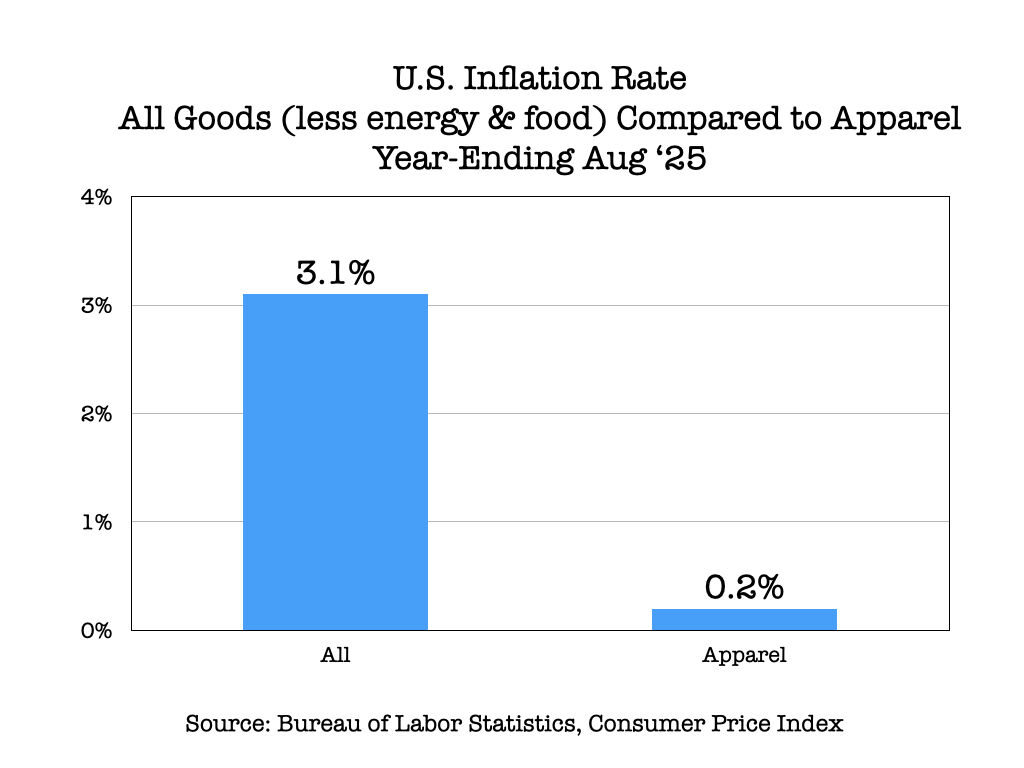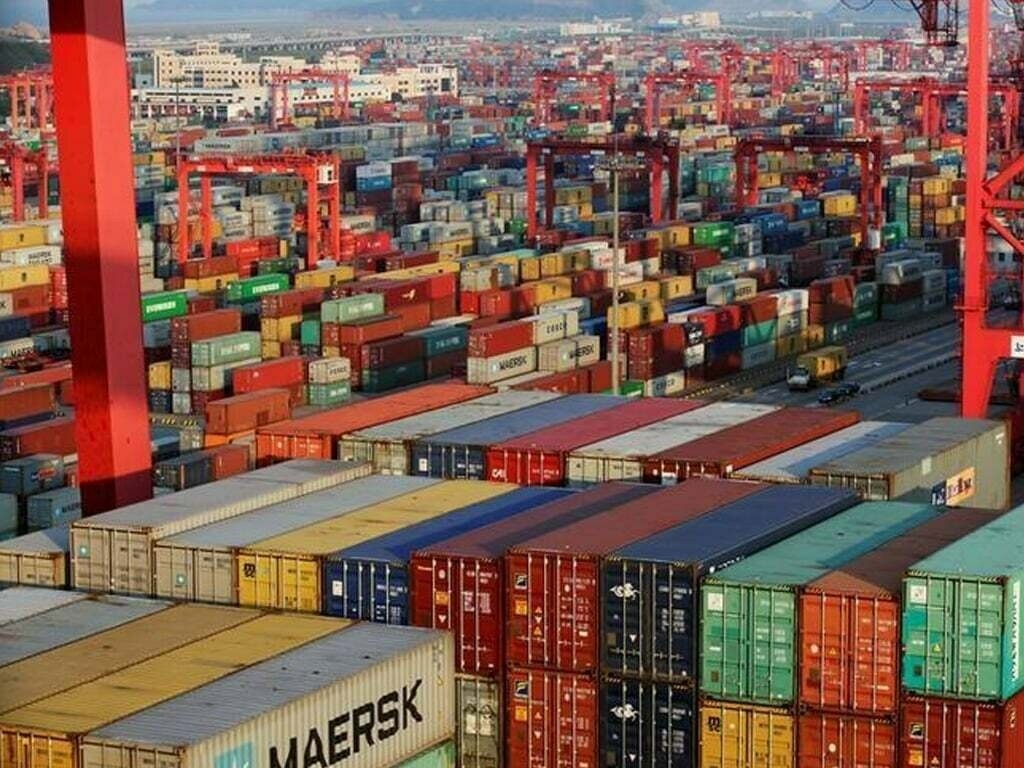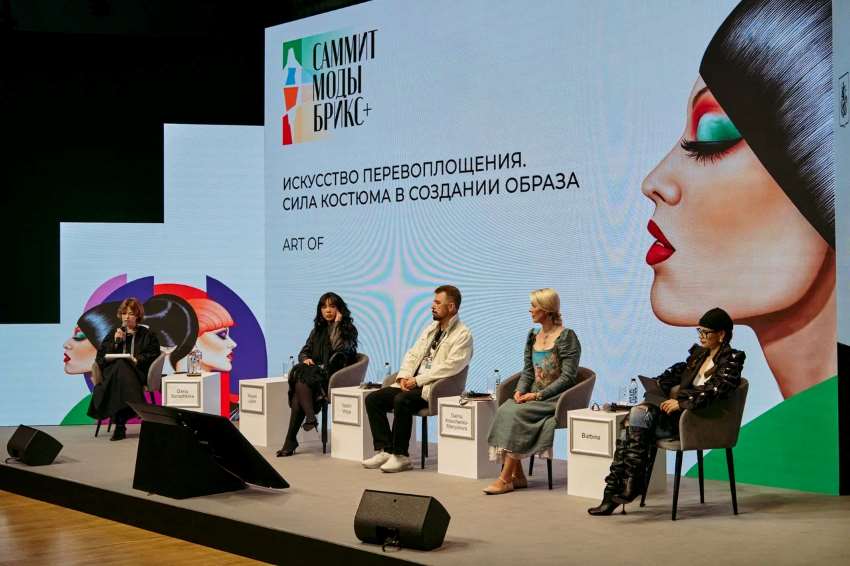FW
Poised for a significant growth, India's textile industry is projected to reach $350 billion by 2030 and create 35 million new jobs. Contributing 2.3 per cent to the nation's GDP, the sector directly employs 45 million people and indirectly supports another 55 million through its value chain. As the second-largest employment generator in India, after agriculture, the sector plays a vital role in women's empowerment and rural development.
Combining cutting-edge technology with India’s cultural heritage, the textile sector spans from mass-produced apparel and technical textiles to traditional handwoven fabrics like khadi and silk. This diversity has boosted India’s international reputation and spurred economic growth. The sector’s extensive supply chain stretches from farms to fibers, fabrics, fashion, and global markets, attracting international brands and merchants. However, to maintain competitiveness, Indian manufacturers are focusing on design, anticipating trends, and producing high-quality, adaptable goods for discerning consumers.
A notable shift is occurring towards high-value technical textiles for industries like healthcare, automotive, and agriculture. India is diversifying its fiber base, reducing dependence on cotton by incorporating synthetic fibers, supported by the National Technical Textiles Mission (NTTM) to enhance its position in this growing market.
Government initiatives such as PM MITRA Textile Parks, SAMARTH for workforce upskilling, and the Production Linked Incentive (PLI) Scheme are driving growth. Indian companies are also leading in sustainability, with practices like solar energy use, water-efficient processes, and waste reduction becoming more common.
Looking ahead, India’s textile sector is investing in research and development, technological modernization, and strategic partnerships to foster innovation. Sustainability remains a priority, with a focus on energy efficiency and decarbonization strategies.
Scheduled for February 2025 in New Delhi, Bharat Tex 2025,will showcase India’s textile potential on a global scale. With over 5,000 exhibitors and 20,000 products, it will highlight sustainability through specialized pavilions and host key events like the Better Cotton Annual Meet and the International Silk Conference. Bharat Tex 2025 aims to set new standards for innovation, sustainability, and global trade, reinforcing India’s leadership in the textile industry.
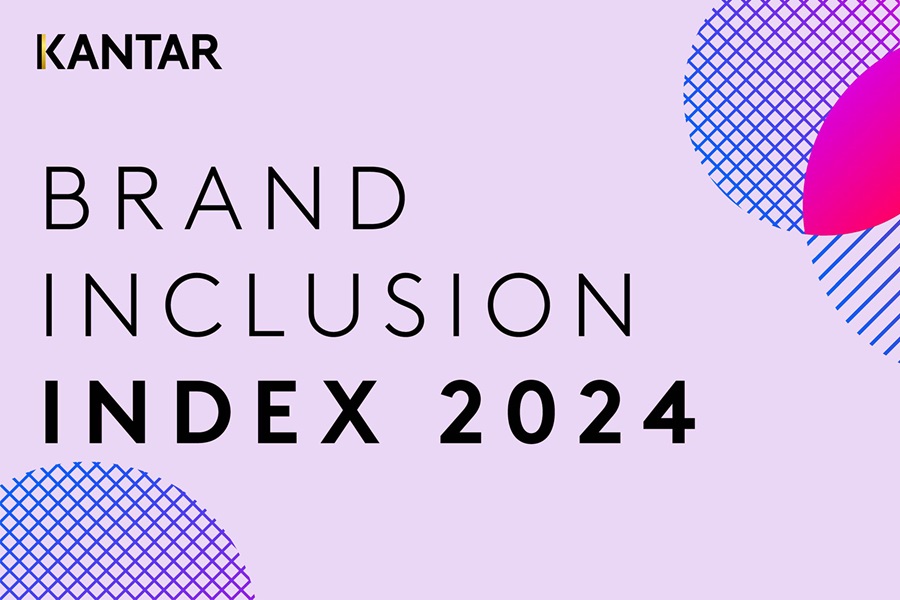
At a time marked by increasing awareness and demand for diversity, equity, and inclusion (DE&I), brands are at a critical juncture. A new study, ‘The Kantar Brand Inclusion Index 2024’ reveals that consumers from traditionally underserved communities are not only acutely aware of DE&I efforts but are actively choosing brands that reflect their values. This presents both a challenge and an opportunity for businesses worldwide.
Kantar's Brand Inclusion Index, a comprehensive survey of over 23,000 individuals across 18 countries, looks at how consumers perceive brands' commitment to inclusivity. The study focuses on four key dimensions: DE&I strategy, diversity, equity, and inclusion, measured through nine indicators. These indicators range from the representation of diverse groups in advertising and product offerings to the brand's commitment to fair labor practices and social responsibility.
Highlights from the report
Inclusivity drives brand preference: A significant majority of respondents across all demographics indicated a strong preference for brands that champion DE&I. This preference translates into tangible purchasing decisions, with consumers actively seeking out brands that align with their values.
Representation matters: Authentic representation in advertising and marketing campaigns is crucial. Consumers are quick to identify tokenism and demand genuine portrayals of diverse individuals and communities.
Action speaks louder than words: While verbal commitments to DE&I are important, consumers are increasingly looking for concrete actions. Brands need to demonstrate their commitment through initiatives that promote equity and inclusion across all aspects of their operations.
Table: Demand for inclusive brands
|
Region |
Consumers who actively seek out inclusive brands |
|
North America |
72% |
|
Europe |
68% |
|
Asia Pacific |
78% |
|
Latin America |
83% |
|
Africa |
85% |
The Kantar report emphasizes brands must move beyond surface-level initiatives and embed inclusivity into their DNA. This includes:
Developing a comprehensive DE&I strategy: Brands need a clear and actionable strategy that outlines their commitment to DE&I and guides their efforts across all areas of the business.
Promoting diversity at all levels: Representation should extend beyond marketing and advertising to include diverse voices in leadership, decision-making, and product development.
Creating an inclusive workplace culture: Fostering a workplace where all employees feel valued, respected, and supported is essential for building an authentically inclusive brand.
The Kantar Brand Inclusion Index 2024 serves as a powerful reminder that in today's world, inclusivity is not just a moral imperative, but a business imperative. Brands that embrace DE&I and authentically connect with diverse consumers are poised to thrive in an increasingly interconnected and conscious marketplace.
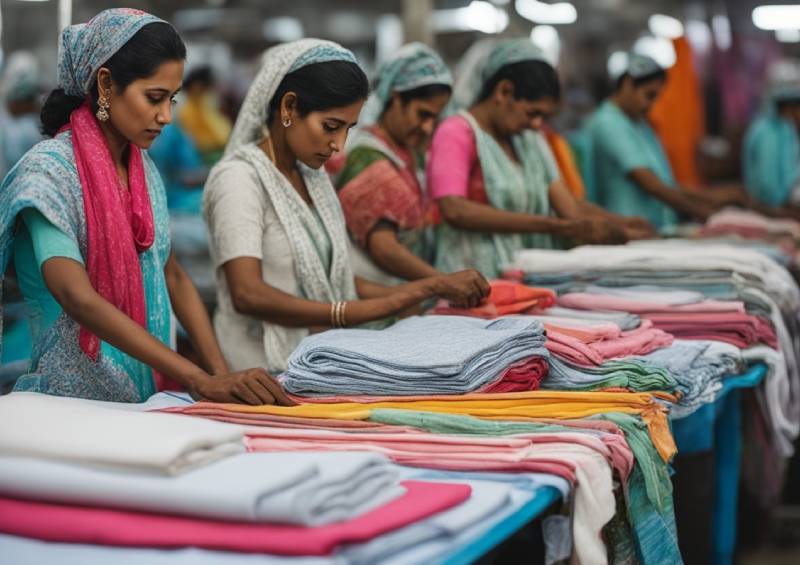
A new White Paper on the state of the Bangladesh economy has shed light on the challenges and opportunities facing the nation's crucial readymade garment (RMG) sector. While the RMG industry has been a cornerstone of Bangladesh's economic growth, the report emphasizes the need for diversification and enhanced resilience to maintain its competitive edge in the global market.
The RMG sector currently accounts for over 80 per cent of Bangladesh's total exports. It employs approximately 4 million people, mostly women. What’s more, Bangladesh is the second-largest exporter of readymade garments in the world, after China.
The White Paper, presented to Chief Adviser Muhammad Yunus, identifies several key challenges hindering the RMG sector's growth and competitiveness:
|
Challenge |
Description |
|
Inadequate infrastructure |
Poor transportation, inadequate port facilities, and power shortages lead to increased logistics costs and delays. |
|
High logistics costs |
Limited shipping options and expensive transportation reduce competitiveness in the global market. |
|
Limited access to finance |
Entrepreneurs face difficulties securing loans, high interest rates, and limited access to financial instruments. |
|
Bureaucratic red tape |
Lengthy administrative processes, excessive paperwork, and delays in obtaining necessary permits hinder business operations. |
|
Exchange rate instability |
Fluctuations in exchange rates impact export earnings and make it difficult to plan and price products competitively. |
|
Stringent regulatory compliance |
Compliance with international standards and regulations can be challenging and costly for businesses. |
|
Insufficient support for SMEs in marketing and branding |
Small and medium enterprises struggle with limited resources and insufficient government support in marketing and branding their products. |
To address these challenges and enhance the RMG sector's resilience, the White Paper proposes a range of policy interventions:
Diversification: Promoting diversification into non-cotton and man-made fibre (MMF) textiles to reduce reliance on cotton-based products.
Financial incentives: Providing financial incentives for compliance with international standards to encourage ethical and sustainable practices.
Technology upgrades: Investing in technology upgrades to improve productivity and efficiency.
Green finance fund: Establishing a green finance fund to support sustainable practices in the RMG sector.
Labor standards: Enforcing labor standards and collaborating with global organizations to ensure ethical practices and improve buyer confidence.
One of the key challenges highlighted in the White Paper is the difficulty faced by RMG factories in adopting sustainable practices. Many factories struggle to meet the environmental and social compliance standards demanded by international buyers.
For instance, Karim, a small factory owner in Dhaka shared his experience. "We want to improve our environmental footprint," he explained, "but the cost of upgrading our dyeing and washing facilities to meet international standards is prohibitive. We need access to affordable financing and technical support to make these changes."
The White Paper's recommendation for a green finance fund could provide crucial support to businesses like Karim's, enabling them to invest in sustainable technologies and practices.
The findings underscore the need for a comprehensive and coordinated approach to strengthen the RMG sector's resilience. By addressing the challenges and implementing the recommendations outlined in the report, Bangladesh can ensure the continued growth and competitiveness of this vital industry. The government, industry stakeholders, and international partners must work together to create a sustainable and ethical RMG sector that benefits both the economy and the people of Bangladesh.
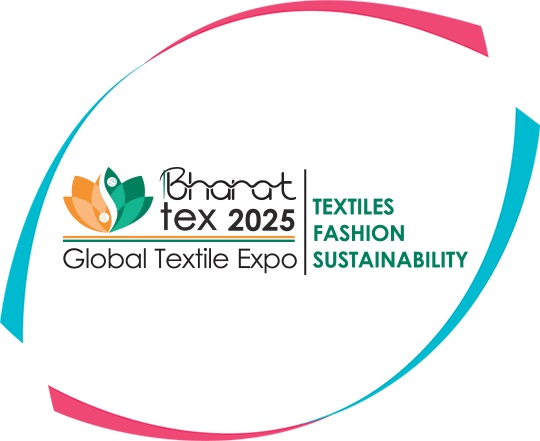
India's textile industry is a cornerstone of the economy, contributing 2.3 per cent to GDP and employing over 100 million people directly and indirectly. From handwoven heritage fabrics like khadi and silk to high-performance technical textiles, the sector marries tradition with modernity. Its alignment with the ‘5F Vision’ farm, fibre, fabric, fashion, and foreign markets underpins a robust supply chain that spans production to retail while preserving India’s cultural legacy.
Shaping global competitiveness beyond cost
While cost efficiency has long been India’s competitive edge, the industry is evolving to meet the demands of fast fashion and technical textiles. Diversifying from its cotton dependency, India is expanding synthetic fibre production, boosted by initiatives like the National Technical Textiles Mission (NTTM). Indian manufacturers are focusing on innovative designs and global trend adaptation, driving competitiveness in sectors like healthcare, automotive, and agriculture.
The government has played a pivotal role in advancing India’s textile sector through key initiatives. The PM MITRA Textile Parks aim to create an integrated production ecosystem, while the PLI Scheme boosts investment in man-made fibres (MMF) and technical textiles. The National Technical Textiles Mission (NTTM) focuses on R&D to strengthen global leadership in technical textiles, and the Samarth Scheme enhances workforce skills to improve productivity and quality across the industry.
Sustainability as a strategic imperative
India’s textile industry is leading the global shift toward sustainability, embracing renewable energy, ethical labor standards, and water-efficient processes. These efforts are part of a national decarbonization agenda, positioning India as a global leader in sustainable textile production. Initiatives in solar energy adoption and waste reduction are standardizing eco-friendly practices, meeting both environmental goals and market demand.
The sector’s reliance on a vast workforce presents an opportunity to blend traditional skills with modern technologies like automation and CAD. Skill development initiatives targeting rural areas and underrepresented groups, including women, are fostering an inclusive workforce, essential for global competitiveness.
Bharat Tex 2025: Catalyzing India’s textile future
Bharat Tex 2025, scheduled from February 12-17, 2025, in New Delhi, will showcase India’s textile leadership on the global stage. Covering 2.2 million square feet, the event will feature 5,000 exhibitors and attract over 18,000 buyers from 110 countries. Highlights include the Sustainability Pavilion, emphasizing eco-friendly practices; the Start-Up Innovation Pavilion, showcasing cutting-edge textile technologies; and the Craft Museum – Indi Bhaat, celebrating India’s rich tradition of arts and weaves.
Supported by major players like Reliance Industries, Aditya Birla, and Welspun, the event also features knowledge sessions and masterclasses focusing on ESG strategies, circularity, and cutting-edge innovations in textiles.
Driving global innovation and collaboration
Bharat Tex 2025 will foster dialogue between global leaders, industry experts, and government entities, including partnerships with UN agencies and think tanks like NITI Aayog. With a strong focus on sustainability, technological modernization, and strategic collaborations, the event aims to set new benchmarks for India’s textile industry.
With projections of the sector reaching $350 billion by 2030 and generating 35 million jobs, India’s textile industry is on a transformative path. By integrating innovation, sustainability, and tradition, India is poised to lead the global textile market, shaping an era of inclusive and sustainable growth.
Replacing Rachna Shah, Neelam Shami Rao has been appointed as the new Textile Secretary.
A 1992-batch Indian Administrative Service (IAS) officer from the Madhya Pradesh cadre, Rao previously served as the secretary of the National Commission for Minorities under the Ministry of Minority Affairs. She has extensive experience in multiple roles including Central Provident Fund Commissioner, Director General of Training in the Ministry of Skill Development and Entrepreneurship, and District Collector in Madhya Pradesh's Guna and Koria districts. An alumna of Motilal Nehru National Institute of Technology, Allahabad, she holds a B.Tech. degree in Electronics.
Additionally, from her previous role as Special Secretary in the Ministry of Information and Broadcasting, Neerja Sekhar has been transferred as the new Director General of the National Productivity Council under the Department for Promotion of Industry and Internal Trade.
Yuming Pan, President, Tichao Techslide (Cambodia) Co, revealed the company plans to establish textile and garment factories in the Kampot province.
These factories will be set up in two phases. The first of these phases will involve setting up of a garment factory while the second phase will follow with a fabric manufacturing factory with an estimated workforce of over 25,000 people, as per reports by the Cambodian media.
These projects were announced as foreign direct investment (FDI) inflows into Cambodia increased to $8.1 billion between September 2023 and September 2024, according to a report by the ministry of economy and finance (MEF). Most of this FDI was received from China, South Korea, Singapore, Japan, Vietnam, Malaysia, Thailand, Canada and the United Kingdom.
In the first nine months this year, the Council for the Development of Cambodia (CDC) announced 315 projects with a total investment of $5.3 billion. These projects are expected to generate over 252 000 jobs and further enhance Cambodia’s appeal as a competitive manufacturing hub in Southeast Asia.
Better Cotton has renewed its standard recognition agreement, Israel Cotton Production Standard System (ICPS) with the Israel Cotton Production and Marketing Board (ICB) for another year. This farmer-owned cooperative represents cotton growers across Israel, supporting the nation’s cotton industry.
Since 2020, ICPSS has been recognised as equivalent to the Better Cotton Standard System (BCSS). This equivalency enables Israeli farmers to market their cotton internationally under the ‘Better Cotton’ label.
In the 2022-23 cotton season, 80 farmers certified under the ICPSS produced over 17,300 metric tons of Better Cotton, comprising 99 per cent of Israel’s total cotton production. Despite its relatively small scale, Israel’s cotton industry has gained global recognition for its pioneering research and development. A few of its key advancements include innovative seed and plant varieties, cutting-edge technologies, and improvements in crop quality and yield.
Looking ahead, the ICPSS will align with Better Cotton’s updated Principles & Criteria (P&C) version 3.0, with full implementation targeted for the 2025/26 season. Better Cotton conducts regular reassessments of partner standards to ensure alignment with its mission of supporting farmers and advancing sustainable practices globally.
The General Authority for the Suez Canal Economic Zone (SCZone) plans to develop a $8.8 million RMG facility in partnership with Turkiye’s Denim Rise.
To create 1,000 direct jobs, the facility will span 26,000 sq m and export 70 per cent of its production. It will open in H2, FY25, coinciding with the launch of similar projects in the industrial zone.
Highlighting the strategic advantages of the Qantara West Industrial Zone, Walid Gamal El-Din, Chairman, SCZone, says, the zone’s proximity to Canal and Delta governorates makes it ideal for labor-intensive projects.
Reflecting robust economic times, the Denim Rise project marks the fourth Turkish investment in the zone which is set to also host facilities for garment accessories, textile printing and dyeing, and the manufacturing of bags and travel goods.
This project is a part of the Phase I of the nine-project deal signed by the SCZone with a combined investment of $317.8 million. Together, these projects are expected to generate over 15,000 jobs across the country.
Consolidating its position as the world’s second-largest exporter, Vietnam’s textile and apparel (T&A) exports are projected to rise to $44 billion in 2024, says Cao Huu Hieu, General Director, Vietnam National Textile and Garment Group (Vinatex).
To achieve these goals, Vinatex aims to enhance its management processes through digital transformation, integrate automation technology, and adopt artificial intelligence to reduce reliance on labor. These initiatives are a part of the group’s broader commitment to modernise operations and promote sustainability.
Noting encouraging signs form key markets such as the US and the EU, Hoang Manh Cam, Deputy Chief, Vinatex, says, economic recovery from these two markets and rising consumer demand are boosting opportunities for Vietnam’s textile exporters. A shift in orders from Bangladesh due to political instability further strengthens Vietnam’s prospects.
Despite a slow start in the first half of 2024, Vinatex’s consolidated revenues increased by 2.8 per cent Y-o-Y to 18.1 trillion VND ($724 million) in H2, FY24. The group’s consolidated profit increased by 37.5 per cent to 740 billion VND during the period.
Vinatex’s success stems from its focus on niche markets and high-tech products like fire-resistant fabrics developed with the UK’s Coats Group, along with innovations in filament core yarns and blended fibers. The group has also adopted an enterprise resource planning (ERP) system to streamline operations.
In its push for sustainability, Vinatex is expanding its wastewater treatment facilities at Pho Noi Textile and Garment Industrial Park, Hung Yen province, aiming to create a model green industrial park. With these initiatives, Vietnam’s textile and garment sector is poised for continued growth, supported by a strategic focus on innovation and environmental stewardship.
A multinational company worth over $2 million, Trident Group was honored by the renowned with the TBD Textile Connect – Textile & Apparel Industry HR Summit Excellence Award for its exceptional HR practices This award was presented to the Group by the Ministry of Textiles in several important categories including Best Employer Manufacturing, Best HR Practice, Excellence in Campus Hiring and Recruitment and Workforce Safety.
The awards were presented by Gririraj Singh Union Textiles Minister who hailed the group’s commitment to promote HR innovation and cultivate a diverse and inclusive workforce. The honor demonstrates the company’s steadfast dedication to create an environment where people from all backgrounds can succeed, says Pooja B Luthra CHRO, Trident Group.
To diversify its personnel, the Trident Group has launched the ‘Takshashila’ program. This innovative program empowers children from a variety of educational backgrounds, including ITI, diplomas, and 10+2. The program currently earns Rs 12 lakh annually and offers people worthwhile job options in the textile sector, enabling them to earn money and knowledge.
The company’s ongoing expansion, involving an investment of Rs 3,000 crore in Madhya, also impacts the state’s local economy in Madhya Pradesh. The expansion also generates 3,000 new employment opportunities, increasing it’s the state’s total workforce to over 15,000 people.


